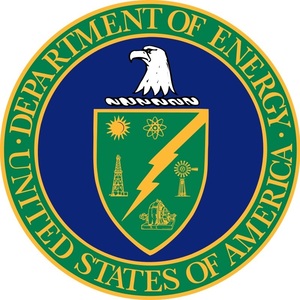DOE awards $18.6M to 8 biofuel, bioproduct feedstock projects

November 28, 2023
BY U.S. Department of Energy
The U.S. Department of Energy Bioenergy Technologies Office (BETO) awarded $18.6 million in funding to eight university and industry projects to develop biomass feedstocks to produce affordable biofuels and bioproducts that reduce greenhouse gas (GHG) emissions. Located in eight states, the projects will create good-paying jobs, support rural economies, and encourage participation of underserved communities, all while putting the United States on a path to a clean and equitable energy economy.
“These critical investments represent DOE’s commitment to tackling the most challenging clean energy problems,” said Alejandro Moreno, Associate Principal Deputy Assistant Secretary for Energy Efficiency and Renewable Energy. “These projects have the potential to drastically reduce barriers to producing clean, sustainable biofuels and can jumpstart innovation in the clean energy bioeconomy.”
The selected projects support DOE’s investment in the development and production of biofuels and innovation and growth in agricultural industries and will help meet the Sustainable Aviation Fuel (SAF) Grand Challenge goal of producing 35 billion gallons of low-GHG emission SAF made from domestic biomass and waste resources annually by 2050.
Currently, most biofuels are made from feedstocks such as corn grain and agricultural residues, forestry residues, and solid and wet waste streams. To meet the growing demand for SAFs and other low-carbon biofuels, affordable feedstocks sources must be developed.
The selected projects will address critical bioenergy needs through two topic areas:
The following projects were selected:
| Selectee | Location (City, State) | Project Title | Federal Cost Share |
| Aequor Inc. | San Diego, California (92121-1321) | Aequor's Algal Crop Protection Treatment This project will test and develop treatments to prevent algae crop productivity loss caused by pests. | $1,600,000 |
| Arizona State University | Mesa, Arizona |
Advertisement
(85287-6011)
Secretome and Exometabolome Effects on Algal Media and Grazing "SEAMAG”
This project will test the effects of media components and recycling on the instability of algal cultures caused by pests.
$2,000,000Corteva AgriscienceJohnston, Iowa (50131-0256)Feedstocks for Advanced Biofuels from Perennial Ground Cover Systems: FAB-PGCs
This project seeks to reduce the carbon intensity of corn stover by growing perennial groundcover (PGC) crops in between the rows of corn, thereby decreasing nitrous oxide (N2O) emissions and increasing soil carbon storage.
$3,404,663Ginkgo BioworksBoston, Massachusetts (02210-2383)This project will develop antimicrobial peptides to treat for algae pests and pathogens in in real-world conditions at industrially relevant scales.
$1,390,144Global Algae InnovationsLihue, Hawaii
(96766-8415)
Combined Biological and Chemical Pest Management in Outdoors Algal Cultivation Ponds
This project will generate microbiota datasets and develop new treatments to support an improved crop protection strategy that proactively maintains a healthy culture and prevents periods of low productivity.
$1,750,000New Mexico State UniversityLas Cruces,
New Mexico
(88003-8002)
Advertisement
Anti-Virulence Approaches to Treat Algal Crops (AVATAC)
This project will identify antivirulence molecules that will be tested against bacterial pathogens of multiple relevant algal strains.
$2,000,000Research Foundation for SUNY on behalf of the University at BuffaloBuffalo, New York
(14260-1660)
This project will develop monitoring and process control strategies to mitigate the impact of pests in mixed algal cultures grown for wastewater treatment.
$1,999,791University of TennesseeKnoxville, Tennessee
(37996-4514)
Biochar Enhanced Ecosystem Services for Energy Crop Systems in the Southeast
This project seeks to reduce the fertilizer requirement for growing two bioenergy crops (miscanthus and biomass sorghum) in six locations in the southeast United States via application of biochar and poultry litter, which itself will help to trap additional soil carbon, lower N2O emissions, and reduce the overall carbon intensity of this feedstock supply chain.
$4,551,944
Related Stories
The public comment period on the U.S. EPA’s proposed rule to set 2027 and 2027 RFS RVOs and revise RFS regulations closed Aug. 8. Biofuel groups have largely expressed support for the proposal but also outlined several ways to improve the rulemaking.
The U.S. renewable fuels industry on Aug. 8 celebrated the 20th anniversary of the Renewable Fuel Standard. Federal lawmakers also marked the occasion with resolutions introduced in the House and Senate earlier this month.
At the University of Missouri, plant biochemist Jay Thelen is using arabidopsis as a powerful model to explore ways to boost oil production — an important step toward creating more sustainable, plant-based energy sources.
Iowa farmers have a new market opportunity for their 2025 soybean crop. Landus is expanding its Clean Fuel Regulation initiative, made possible by recent policy changes expected to increase Canada's demand for liquid biofuel.
Klobuchar, Moran introduce bipartisan legislation to support biorefineries, renewable chemicals, and biomanufacturing
Sens. Amy Klobuchar, D-Minn., and Jerry Moran, R-Kan., on July 31 announced the introduction of the Ag BIO Act. The legislation aims to update the USDA’s loan guarantee program to better support biorefining projects.
Upcoming Events










